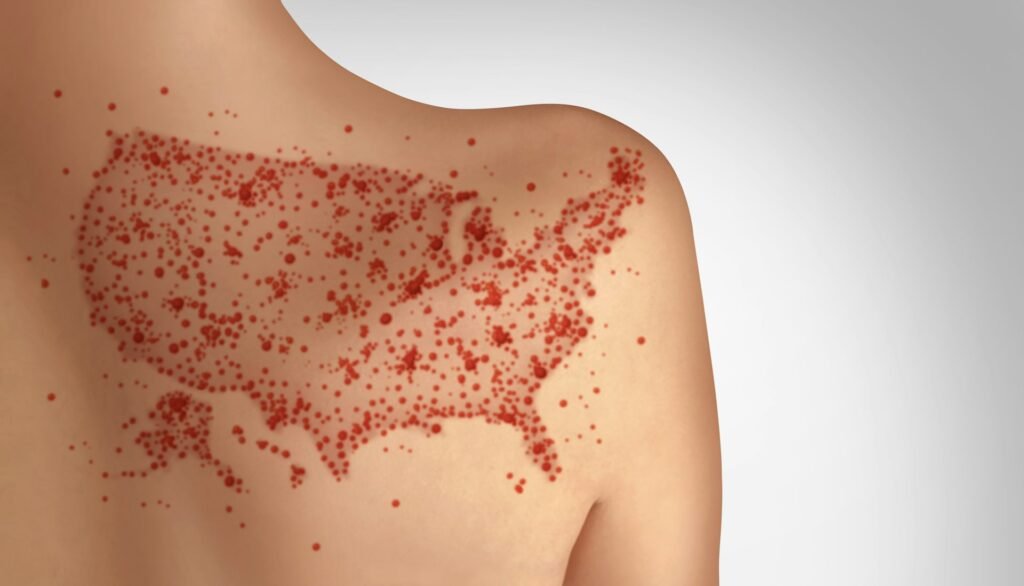Measles affects the immune system does more than cause a rash and fever. It can also wipe out the immune system’s memory. After recovery, survivors may become vulnerable to infections they had already fought off — such as the flu, a cold, or illnesses they were vaccinated against.
In Canada, health authorities warn that measles can lead to serious immune suppression, known as immune amnesia. This condition raises the risk of other illnesses and even death for months or years after the initial infection.
Immune amnesia works by destroying memory cells in the immune system. These cells include B and T lymphocytes that handle prior immune or viral infections. When measles infects and kills those cells, the immune system loses physical memory of past pathogens.
When the immune memory is gone, the body cannot respond to familiar threats as well as it did before measles. That leaves people vulnerable to diseases they had already built defenses for.
A landmark 2019 study found that measles can reduce a person’s protective immune memory by up to 73 percent.
Because your immune system is left in a near-blank state — similar to a baby’s — research shows it can take years to rebuild its defenses.

Measles is one of the most contagious viruses. Its reproduction number (R₀) ranges from 12 to 18. That means one infected person can spread it to up to 18 others in an unvaccinated group. For comparison, the original strain of COVID-19 had an R₀ of about two to three. Even the more transmissible variants rarely exceeded ten.
The virus can cause serious complications — including severe illness and death — and it also carries the risk of immune amnesia. https://asm.org/articles/2019/may/measles-and-immune-amnesia
How Immune Amnesia Happens
Our immune system uses memory cells, specifically B and T lymphocytes, to fight infections we’ve battled before. When vaccinated or exposed, these cells remember the pathogen so future attacks can be quickly countered. Measles interferes with this system.
The measles virus binds to a protein called SLAM (Signaling Lymphocytic Activation Molecule) on T cells, B cells, and plasma cells — including those that pump out antibodies. Then it infects and destroys those immune cells, erasing the body’s built-in library of prior protections.
Despite erasing many immune memories, the immune system does remember measles itself. That immunity remains because you must survive measles in order to carry forward any protection.
How Common Is It?
Almost everyone who gets measles experiences some level of immune amnesia. The extent varies based on how ill someone was, their nutrition status, and their immune health. Children with severe infection seem especially vulnerable.
A Greater Risk for Certain Ages
Infants and young children — who are not yet vaccinated — face high risks because their immune systems are still developing. Older adults are also at risk, Measles affects the immune system because immune function naturally declines with age. Immunity loss due to measles can thus be especially hazardous in both groups.

How Long It Lasts
Studies show immune amnesia may last two to three years after measles infection. In some cases, the immune system rebuilds more slowly, and vulnerability remains for longer.
Preventing Immune Amnesia
The best way to avoid immune amnesia is to prevent measles infection in the first place — and that means vaccination. The measles component of the MMR vaccine (measles, mumps, rubella) is highly effective at preventing measles and, by extension, the immune system damage it can cause. With one dose given around 12 to 15 months of age, efficacy is 85 to 95 percent. With the second dose, it rises to nearly 100 percent. Vaccination not only prevents the immediate symptoms of measles but also protects the immune memory you’ve built up over your lifetime.




